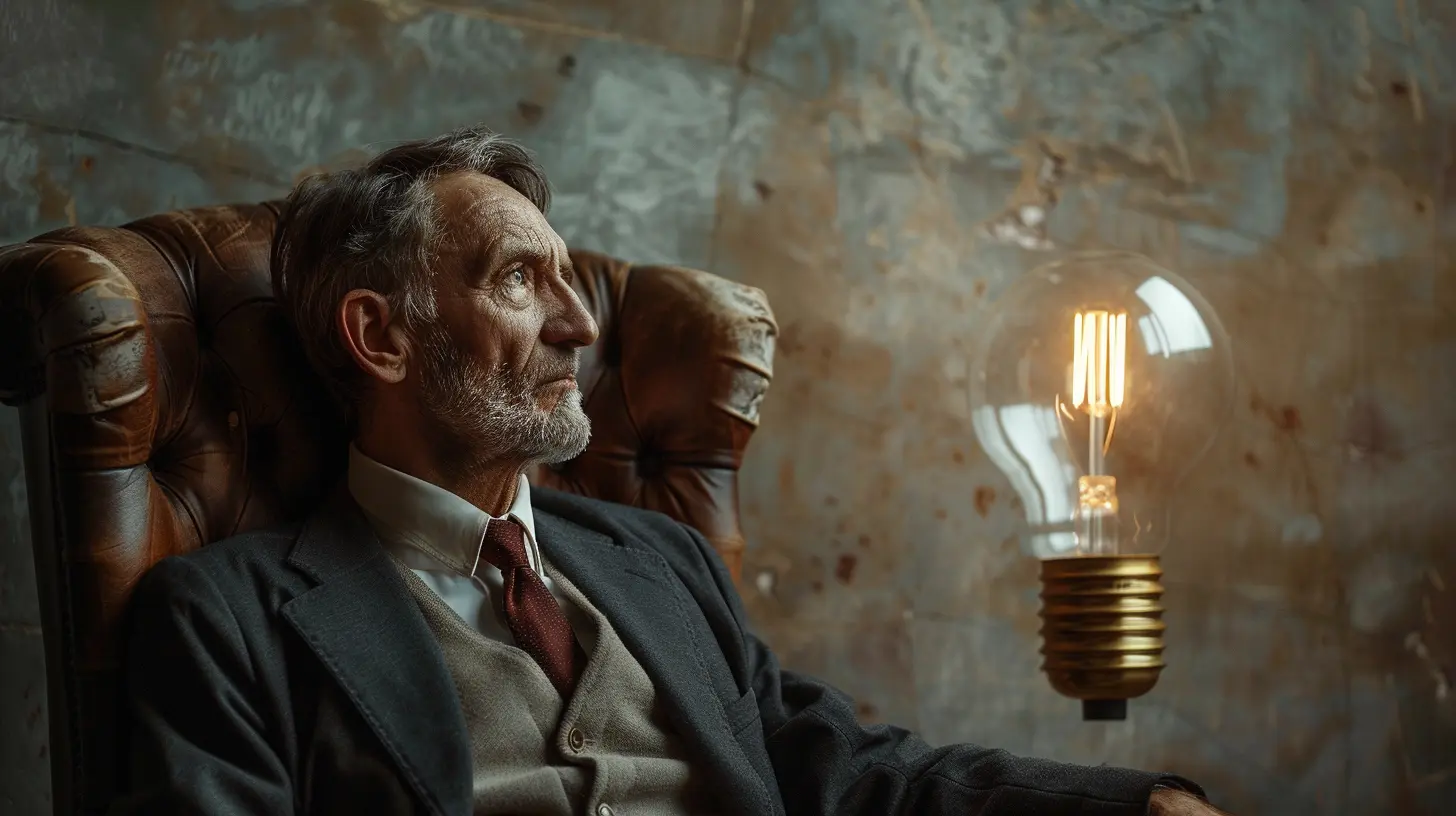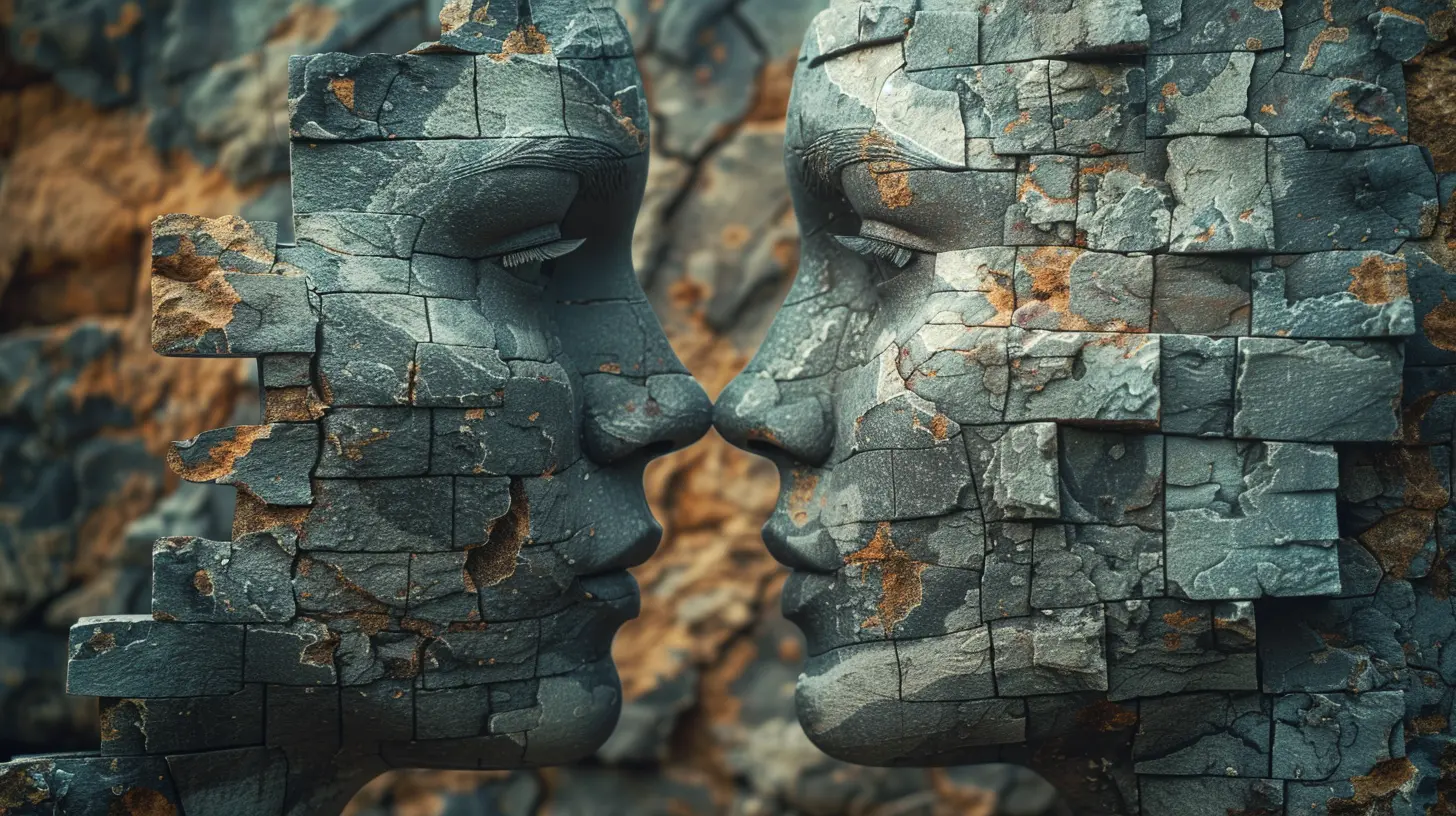Exploring the Link Between Past and Present in Therapy
5 September 2025
Ever wonder why your therapist keeps circling back to your childhood? Or why those old memories, the ones you’ve stuffed into the back of your mind like forgotten Christmas decorations, keep popping up during sessions?
You're not alone. Turns out, understanding the connection between our past and present is one of the most powerful tools in therapy. It's like trying to solve a puzzle—if you’re missing some of the original pieces, the full picture never quite makes sense.
In this article, we’re going to break it all down. We’ll look at why the past matters, how it shapes your present behaviors, and how talking about it in therapy can spark powerful, lasting healing. Ready to dive in?

Why Does Therapy Focus So Much on the Past?
You might be thinking, “The past is the past, right? Why keep digging it up?”Good question. But here’s the truth: our past experiences, especially the ones from childhood, leave footprints in our minds. They shape how we see ourselves, how we relate to others, and even how we handle stress.
Think of your brain like a computer. Your early life installs the software. If that software has a few bugs from early emotional wounds, it can cause glitches as you grow up—like relationship problems, low self-esteem, or chronic anxiety.
Therapy helps identify those bugs so you can update the program for how you think, feel, and behave today.

The Inner Child: How Early Experiences Stay With Us
Let’s talk about the “inner child.” No, it’s not just therapy jargon—it’s real and it’s important.Your inner child is the emotional memory of your younger self. When we’re kids, we experience life with raw, unfiltered emotions. If we didn’t feel safe, loved, or heard back then, those unmet needs can echo into adulthood.
Ever overreacted to something small and wondered, “Why did that bother me so much?” That might be your inner child speaking. Therapy helps connect those dots.
By tuning into those early feelings and unmet needs, therapy offers a chance to comfort that inner child. It's kind of like going back in time—but with the tools and wisdom you didn’t have before.

What the Past Can Reveal About the Present
Here’s the kicker: your past doesn’t just live in your memory—it lives in your reactions.Let’s break that down.
Say you had a critical parent growing up. Fast forward to adulthood, and now whenever your boss gives you feedback, you freeze or feel intensely anxious. That reaction isn’t about your boss—it’s a trigger from your childhood.
Here are some other ways the past can sneak into the present:
- Attachment styles – How you connected with caregivers affects how you attach to romantic partners.
- Communication habits – If emotions weren’t talked about at home, you might struggle to express them now.
- Core beliefs – Messages like “I’m not good enough” or “I can’t trust people” often come from early experiences.
By recognizing these patterns in therapy, you get to stop living on autopilot and start making intentional choices.

Therapy as a Bridge Between Then and Now
Picture therapy like a bridge that connects who you were to who you are now. You’re walking across it, looking back, pausing to reflect—but always moving forward.Your therapist isn’t just pulling up the past to make you feel things. They’re helping you understand how those early experiences are showing up in your daily life.
This process is called insight-oriented therapy, and it includes types like psychodynamic therapy and inner child work. These approaches encourage you to reflect on the past, but with a purpose: healing and growth.
And here’s the beautiful part: once you understand where your stuff comes from, it doesn’t control you as much anymore.
Rewriting the Narrative: Healing Through Awareness
One of the most powerful things therapy offers is the chance to rewrite your narrative.You might have carried an internal story for years like:
- “I’m not lovable.”
- “Good things don’t last.”
- “I have to be perfect to be accepted.”
Those stories didn’t come from nowhere. They were written during moments when you were vulnerable and alone. Therapy helps you look at the evidence behind those beliefs—and decide if they’re actually true.
Spoiler alert: they’re usually not.
By revisiting the past through a compassionate lens, you can start to reframe those stories. And when the story changes, your life changes too.
It's Not About Blame—It's About Understanding
Let’s clear something up. Talking about your past in therapy isn't about blaming your parents or anyone else. It's about understanding.Just like a doctor needs your medical history to treat your symptoms, therapists need your emotional history to support your healing.
Maybe your parents did the best they could with what they had. Maybe they didn’t. Either way, your feelings about your experiences are valid—and they deserve space.
Acknowledging pain from the past isn’t about staying stuck there. It’s about breaking free from patterns you didn’t even know were running the show.
The Role of Memory in Healing
Our brains are amazing—and frustrating—when it comes to memory.Sometimes, we remember things clearly. Other times, we have vague feelings or body sensations that don’t seem to make sense. These are called implicit memories.
Therapy helps bring these hidden memories to light. You may not remember every detail from your childhood, but your emotions and behaviors hold the clues.
Have you ever felt irrationally insecure in a relationship, even when everything seems fine? That could be an implicit memory from a time when connection didn’t feel safe or consistent.
By gently exploring these moments in therapy, you create space for healing that goes deeper than words.
Mindfulness: Connecting the Past Without Getting Stuck
You might be wondering, “If I focus on the past too much, won’t I get stuck there?”That’s where mindfulness comes in.
Mindfulness is the practice of being present with your thoughts and feelings—without judgment. In therapy, it helps you connect with the past in a grounded, healthy way.
Instead of reliving painful experiences and getting lost in them, mindfulness helps you observe them with curiosity.
It’s like watching waves from the safety of the shore rather than getting pulled under.
Embracing Your Full Story
Healing happens when we stop trying to cut out the painful chapters of our story.You are the sum of everything you've been through—the joy, the pain, the mess, and the magic. Therapy invites you to own it all. Not just the “good” parts, but the raw, real, and honest parts too.
When you embrace your full story, something amazing happens. You begin to shift from surviving to thriving. You stop asking, “What’s wrong with me?” and start asking, “What happened to me?”
And most importantly—you realize that you get to write the next chapter.
How Therapy Helps You Rewrite Your Future
So, what’s the point of digging through the past?It's simple: to liberate your future.
Therapy doesn’t change what happened to you—it changes how what happened to you affects you. It helps you respond to life differently, with less fear and more freedom. You become more conscious of your patterns, and over time, you start choosing new ones.
Imagine this: What would your life look like if your old wounds didn’t keep bossing you around?
Therapy gives you the map to that life. It’s not instant, and it’s definitely not always easy—but it’s worth every step.
Final Thoughts: Your Past Isn't a Life Sentence
If you take one thing from this article, let it be this:Your past might explain you, but it doesn’t define you.
Therapy is a place where you can safely unpack the baggage you’ve been carrying for years. You’ll laugh, cry, learn, and grow. You’ll meet parts of yourself you didn’t even know were there—some that need love, some that need boundaries, and all of them worth knowing.
No matter where you come from, healing is possible. And bit by bit, session by session, you’ll start to feel lighter. Freer. More you.
So don’t be afraid to look back. Sometimes, the way forward begins with a single brave glance into the rearview mirror.
all images in this post were generated using AI tools
Category:
Psychological CounselingAuthor:

Matilda Whitley
Discussion
rate this article
1 comments
Dylan McInnes
The integration of past experiences into therapy is crucial for understanding present behaviors and emotional responses. By examining historical influences, therapists can help clients gain insight into their patterns, enabling healthier coping strategies. This exploration fosters personal growth and enhances the therapeutic process for lasting change.
September 5, 2025 at 3:10 AM

Matilda Whitley
Thank you for highlighting this essential aspect of therapy! Understanding past experiences truly empowers clients to make meaningful changes in their lives.


